Receiving a diagnosis of lung cancer means that a cancer has developed in your trachea, the bronchi or your lung tissue.

Trachea
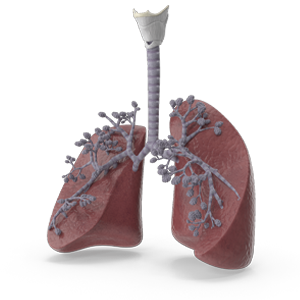
Bronchi
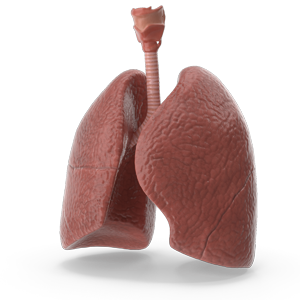
Lung Tissue

DID YOU KNOW?
The term ‘cancer’ (also known as a tumour or mass) describes disease caused when cells become able to grow and divide abnormally, and eventually spread to other parts of the body.

What causes lung cancer?

Smoking
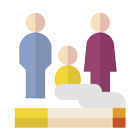
Regularly breathing in second-hand smoke

Exposure to radon

Exposure to asbestos

Exposure to arsenic

Exposure to uranium
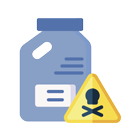
Exposure to other chemicals (for example, in the workplace)

Having had radiation therapy to the chest in the past
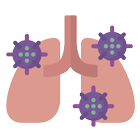
Having had infections that have caused chronic inflammation in the body

Exposure to significant air pollution
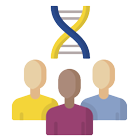
A family history of lung cancer

Having related diseases*
*Including chronic obstructive pulmonary disease (COPD), widespread pulmonary fibrosis and some types of cancer.
What are the risk factors for lung cancer?
More than one risk factor can result in the development of lung cancer. Although you can’t definitely prevent it, there are things you can do to reduce your risk.
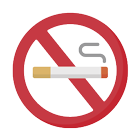
Avoid smoking

Avoid second-hand smoke, as much as possible

Eat well

Exercise
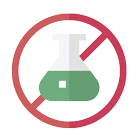
Avoid toxic chemicals

Test your home for asbestos and high levels of radon

Test your drinking water for chemicals known to cause cancer
How can lung cancer affect you?
If you have one or more of the following persistent symptoms it is important that you get checked by your doctor as soon as possible.

Cough
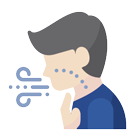
Breathing problems
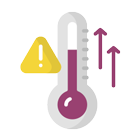
Intermittent fever for many weeks

Appetite/weight loss
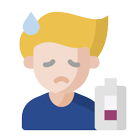
Extreme fatigue and weakness

Shoulder, chest or rib pain

Bone pain

Finger clubbing
If the cancer spreads (metastasises) to another part of the body, symptoms and signs might appear in the part of the body that the cancer has spread to. For example, if the cancer spreads to the brain, a person might experience neurological symptoms such as headaches, seizures, loss of balance and memory loss.
As a lung cancer develops, it can cause other symptoms that include:

Bigger lymph nodes
For example, on the neck.

Difficulty Speaking
Caused by effects on a vocal cord.

Difficulty Swallowing
Caused by the oesophagus (food pipe) becoming squashed.
Can lung cancer be cured?
The earlier the stage of a cancer when it is found, the greater the chance that it can be cured. The chance of cure decreases significantly as a cancer becomes more advanced and starts to spread.
How is lung cancer treated?
Different types of lung cancer respond to treatments in different ways, so it is important to find out the type and stage of your cancer. Knowing the type and stage of your lung cancer, your general health and your treatment goals will enable you and your medical team to decide which treatments may be best for you, and most effective against your cancer. These may include:

Surgery
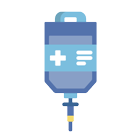
Chemotherapy

Radiotherapy
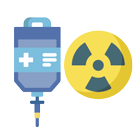
Chemoradiotherapy

Targeted therapy

Immunotherapy

Ablation

Laser therapy

Photodynamic therapy

Diathermy (electrocautery)
New treatments are being developed all the time and you may be eligible to take part in a clinical trial. Clinical trials test how well new medical approaches and treatments work and whether they are as good as, or better than, existing treatments.

